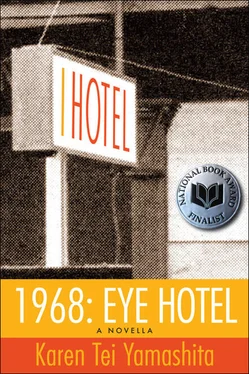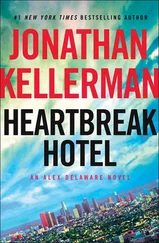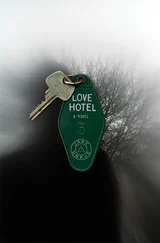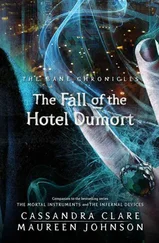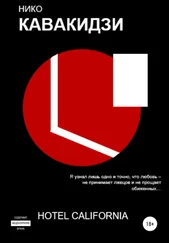We demand back wages and fair negotiation for better working conditions!
24 CHINESE RESTAURANT—LATE EVENING
Exterior shot of Sai Yon’s on Jackson Street. Teenage youth is hanging outside with a group of young men. Camera saunters in with him and others.
Interior of restaurant. It’s the late-night crowd, hanging out with bowls of noodles. About twenty young men commandeer two round tables, ordering platter after platter and beers. One waiter is feverishly rushing around trying to keep up with the orders.
YOUNG MEN
Yeah, you got your Wah Ching, your Joe Boys, your Suey Sing Boys, Hop Sing Boys, John Louie’s, Cookie Boys. Then there’s always the babies: Baby Wah Ching, Baby Joes. Like that.
Us? No we ain’t any of them. Do we look like those fei jies?
Me, I work in the area of holiday festivities. My work is seasonal, picks up around New Year’s and the Fourth of July. That guy there? He’s nothing but a pool shark. (laughter)
Yeah, Chinatown can be a dangerous place. It’s all over the newspapers. Guys shot in the head. That baby gangster Lincoln killed. Something’s got to give.
Hey, waiter. (motions to the waiter)
Let me tell you something. Tourists come to Chinatown anyway. They read the news, but they come anyway. You know why? Because the food is cheap. Tourists will risk their lives for cheap food.
(to waiter who’s come over to the table) Tell him how much you make. Yeah, throw in the tips and everything. How much?
(waiter throws up his hands in disgust and leaves, cursing)
I’ll tell you what he makes: what my old man makes—three fifty a month. O.K., max five hundred. He works six days a week and ten hours a day.
You wanna put down a tip, O.K. Bill’s taken care of, cuz. Services rendered. (saunters out)
(no one pays, waiter yells after them)
25 EXTERIOR—JACKSON STREET
Across the street a white ’66 Chevy Impala is ablaze. SOUNDS of explosion, commotion, and frantic running.
VOICES
What the fuck! Joey’s car!
SOUND of gunfire. Camera swings around wildly.
VOICES
Oh my god!
Edmund! Edmund!
Edmund is staggering. Blood is splattering across the sidewalk. The camera reels around, following scattering footsteps. Swirling visuals capture parts of faces, guns, flash of neon and scuffle of dark bodies. SOUND of motors gunning away and incoherent yelling in English and Chinese.
26 UNFOCUSED—JACKSON STREET
Camera continues to run, a long-view shot parallel to the ground, stretching down the concrete along Jackson Street. Edmund’s broken glasses can be seen through the viewer, and the image of a man running is framed in the glass of the unbroken lens. SOUND of gasping and labored breathing.
THE END
So maybe there’s this moment. It’s different for everyone, but it’s pivotal. It’s the moment your head gets screwed off and screwed on again, and everything is changed forever. You can never see life the same way again. You can never go back. Well, you can go back, but you go back with new eyes, maybe a new brain, new ears, new mouth. It could be there’s a propensity for the moment, like DNA that’s planted inside you ready to catch the moment. Some folks might say it’s family history. Or maybe you can trace a series of events, plot them out like a map. You remember this time in your childhood: your mother or father said this; you saw that; you got caught up in this; you read that. Then it all comes together and wham! The lights turn on. O.K., it might be more subtle, more gradual, but there’s always something really significant that captures the heart and mind. And it’s not to say that it might not be painful or personally devastating as well. At that moment you shed an old life to become a whole person because, you believe, your body in its actions and your mind in its spirit are wholly in sync. Your talents and possibilities exist for a purpose that is beyond yourself.
Now it’s not as if this moment lasts forever, or that things don’t get sticky and go back on themselves. But it’s the moment you return to because it sustains meaning and empowers the lonely individual. Of course most folks never get this moment, and you who do get it are still imperfect human beings.
Witnessing Edmund’s death was that sort of moment. Paul, employed to capture sound, dropped the boom and ran down the street to find a pay phone. But it was Judy Eng who found herself watching everything through the narrow hole of the camera lens. She felt her face hopelessly glued to the machine as if thus empowered to find the source of the bullet and to stop it. The camera swung about searching and recording. It was a mechanical thing, a pompous truth machine. In the aftermath, these last minutes would be replayed relentlessly, scrutinized frame by frame, used by the police and the prosecutor to identity the killer, if not his accessories. Similarly, Judy sat in a dark editing room and obsessively studied the tape over and over again.
“Stop it!” Paul yelled. “How can you keep watching that?”
Judy faced him stalwartly. Her eyes were bloodshot. “Leave me alone.”
“Why are you doing this? Let the police figure this out.”
“Who gives a fuck about the police!”
“You need help.”
“I don’t need help. I need Edmund.”
“Edmund’s gone,” Paul said softly.
“He’s there,” she wept. “Look, there.” She pointed at Edmund’s figure collapsing on the monitor.
“No, that’s not him. That’s not him.”
“It’s my fault.”
“No.”
“It’s true. Look. I timed the minutes from when he falls to when I stop taping. One minute and twelve seconds. Do you know how long that is? I saw him fall in my finder, and I kept on filming, like it wasn’t real or like it was real, like fascination.”
“It’s just confusion.”
“It’s not.”
“You’ve watched it too many times.”
“I was watching him die. Like a fucking spectator!”
Running back down Jackson Street from his frantic call for help, Paul found Judy cradling Edmund’s head in her lap and wailing. She was wailing again now.
One minute and twelve seconds. The time it takes to make a choice, and Judy kept watching her choice over and over again. I think it’s possible at this juncture that Judy might have gone over the deep end. Paul certainly thought that might happen as he tried to drag her away from the equipment.
Chen stood in the doorway, the dark empty corridor behind him. He walked over to a table, pushed away the piles of papers, newspaper articles written by Edmund, and scattered photos, and put down the large paper sack he was carrying. “Paul,” he said matter-of-factly, “I forgot to buy a newspaper, and we could use some drinks. A beer for me.” He drew some bills from his pocket.
Paul loosened his grip on Judy, glanced gratefully at Chen, and walked away.
When Paul returned, Chen and Judy were hunched over Chinese takeout boxes picking out the contents with chopsticks.
“Sorry,” Chen looked up. “We couldn’t wait. Judy hasn’t eaten in three days.”
Judy had grabbed the box of rice, hoisted mein on top, and was wolfing down the contents.
Chen pulled out his pocketknife. Paul popped open a beer for himself and nursed it slowly, observing the empty boxes. He munched on an almond cookie.
“We saved some tofu for you. Your favorite.” Chen pushed a box over and tossed him the chopsticks.
Paul picked out the tofu pieces and stared at a series of photographs of Edmund speaking in front of a mic at some rally. Chen puttered around him, gathered the empty cartons and rearranged the table, and finally hustled the film crew of two out of the studio.
Читать дальше
